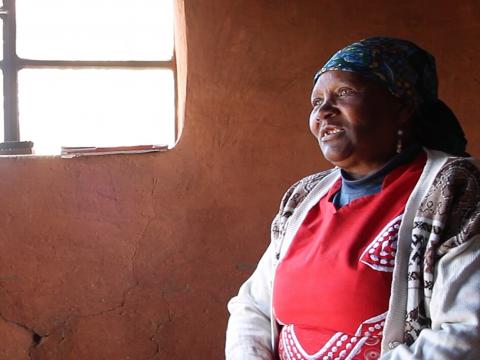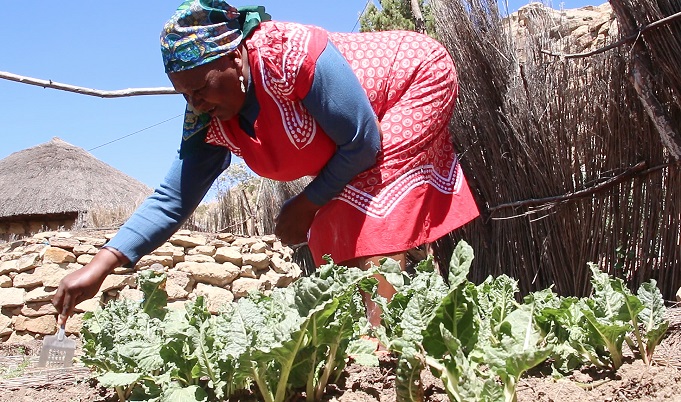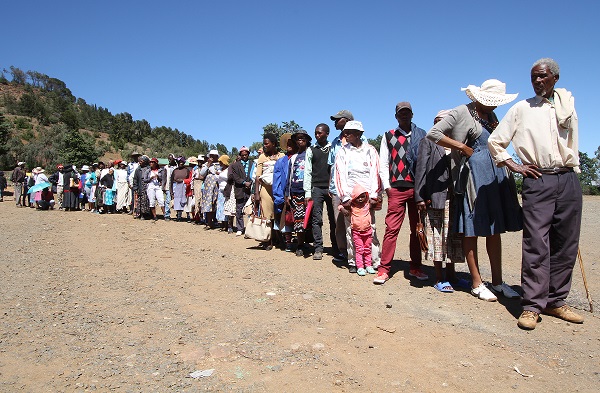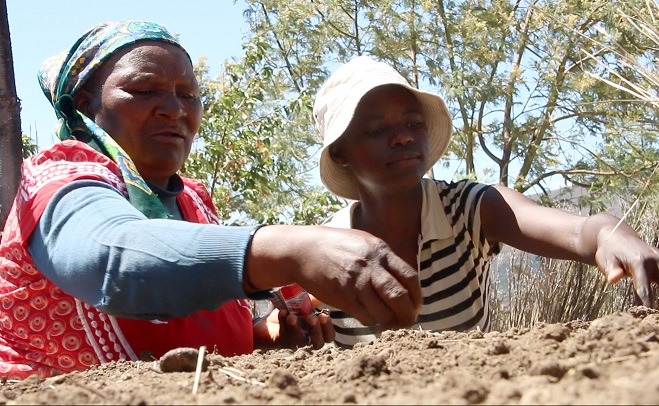Cash transfer program raises hopes in Lesotho

“I depend on farming for survival. I do not have my own farm and does share cropping with other farmers, like planting in their land. This had been my means of feeding the seven grandchildren I look after”, Malibuseng Ntsiane said, adding, “Their parents left for South Africa in search of employment but did not find any. The recent drought affected us badly such that I could no longer buy seeds. I want to thank World Vision for the cash assistance. I can by food out of it including other household needs. Most importantly I can buy vegetable seeds.”
While other people affected by the El Nino’s impact preferred to focus on food, this 63-year old grandmother sets aside some budget to buy seeds for planting. She loves farming and looks at life beyond the support she gets through the cash transfer program.
Holding her small handbag hanging on her shoulders, Malibuseng looked excited. “Today I am going to get my cash assistance from World Vision. I am excited”, she said. “I plant vegetables round our house and when the production is good, I go around the village selling our excess to make money. I use the extra income for candles, mealie-meal and our other needs,” she shared.
“I want to buy seeds because I am looking at life beyond the cash that we receive”, “she said. She added that buying food alone would be a short-term solution to the food insecurity problem. The seeds give her hope. Malibuseng is one of the beneficiaries of cash transfer program that World Vision, in partnership with the World Food Program, to people affected by El Nino through life-saving operations. Each household member receives R120 (US$12) every month for six months. Malibuseng has so far received R940 ($94).
After getting the money, she goes to the supermarket and buys wheat meal, paraffin and some grocery goods including tomatoes and some meat, vegetable seeds and maize for the chickens she raises. As she does, she voiced hopes that the rain will help grow crops in the farms. Most rural families in Lesotho depend on rain-fed subsistence farming as main source of livelihood for many people. The recent rain experienced in most parts of the country have not begun solving the food insecurity problem but instead camouflaged it. It will take few more months before the people can recover.
“We normally arrange the cash disbursement with the bank to ensure that it is done on time because we know they desperately need the money for food. We also do it quicklyas most of the recipients are elderly”, said World Vision’s Cash Disbursement Officer Motheba Lerotholi.
On December 2015, the Government of Lesotho declared a state of drought emergency and appealed for assistance from the international community. Lesotho needs an estimated 584 million Maloti (US$ 37 milllion) to provide water, food, nutritional support and medication to those most vulnerable people and to prevent further loss of livestock. The government has indicated it has only 150 million Maloti (US$ 9.6 million) to support relief efforts.
The Lesotho Vulnerability Assessment Committee (LVAC) results in June 2016 showed that 679,437 people in the rural areas of Lesotho are in need of humanitarian assistance between June 2016 and May 2017. The most immediate needs identified were food and water. The LVAC found that about 17% of households were using water from unprotected sources. In Maseru, Mokhotlong and Thaba-Tseka Districts, 22 to 32% of the people are reportedly using water from unprotected sources. The vulnerability caused by El Nino has compounded existing high rates of poverty and HIV infection that are among the highest in the world in Lesotho.
A
Photos by Chris Lete and Eugene Combo


